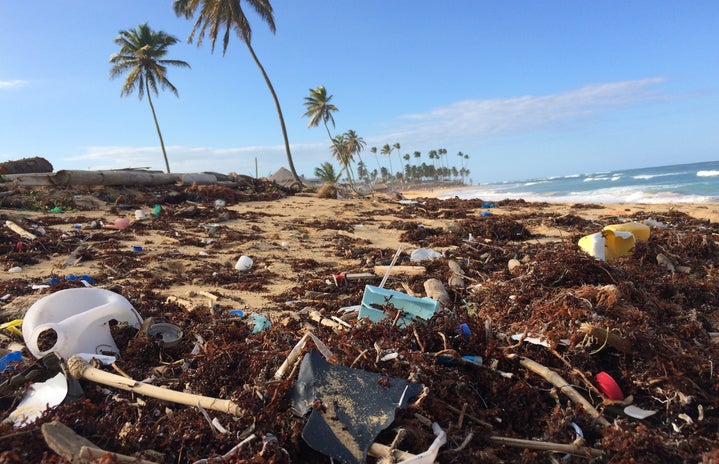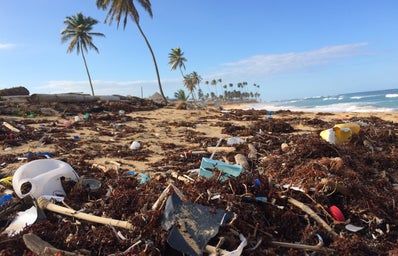When COVID-19 began to spread in December 2019, the use of single-use plastic items dramatically increased. Many forms of personal protective equipment, including disposable masks and gloves, became essential for reducing the spread of COVID-19. Cleaning products, which are often packaged in plastic, and disinfectant wipes also increased in demand. Customers stopped bringing their reusable bags to carry their groceries, and instead opted for plastic or paper bags. As restaurants shifted to “curbside pick-up” and “take-out only,” people were left with plastic bags, containers, silverware and sauce packets that they did not need.
While the stay-at-home orders have been credited with the decrease in 2020 global carbon emissions, it’s dangerous for us to assume that the pandemic was beneficial for the environment overall. The shift of public attention to the pandemic health crisis has undoubtedly hurt the momentum of the environmental movement. Past progress like plastic bag bans and other bans on single-use plastic items have been practically unenforceable during the past year. The convenience of using single-use plastic products has allowed for the easy disposal of items to prevent the spread of the COVID-19 virus. According to one report, concerns over the disposal of potentially contaminated items, from medical equipment and PPE to basic household waste, have halted some U.S. recycling programs. However, as we have become more and more accustomed to using these items over the past year, it’s important to recognize the harm that single-use plastics have on the environment.

Most plastic is derived from fossil fuels. It’s used and marketed as a convenient material and is often thrown away after only brief use. According to the International Institute for Sustainable Development, plastic breaks down into smaller and smaller pieces, creating microplastics and nanoplastics that will last for hundreds of years. While plastic is often seen as a recyclable material, most plastics are not infinitely recyclable and end up contaminating the environment, including the food and water that we consume. As reported by National Geographic in 2018, 91% of plastic is not recycled, showing that this is not a crisis we can ignore. But how can we continue to refuse and reduce plastic products when so many of them have become essential during the COVID-19 pandemic?
While it certainly is more difficult to refuse plastic now, it’s important not to get accustomed to using single-use plastic products. When your local grocery stores and businesses begin to allow reusables again, use yours! By washing your hands and products (bags, mugs, silverware, etc.) frequently, you can still help prevent virus transmission. If you order takeout, let them know if you actually need sauce packets, silverware, plastic bags or straws. You can also encourage local businesses to focus more on cardboard takeout containers and paper bags. Another option to reduce waste is to wear a reusable mask, but make sure it is effective per these CDC mask guidelines. These small actions can help reduce your plastic usage during the pandemic, but it is important to remember that many people are not able to do these things due to their job, or for health and financial reasons. The reliance on single-use plastics in various industries is not the fault of the individual, but instead a lack of serious environmental considerations among corporations and governments, and the exploitation of the environment under capitalism. For these reasons, the most important way to contribute to the reduction of plastic waste is through political action and civic participation in elections in support of more sustainable and circular economies.

While the increased use of plastic products during the COVID-19 pandemic is concerning, efforts have already begun to try to make disinfectant and virus-prevention protocol more sustainable in the case of future outbreaks. This study in the Chemical Engineering Journal has made a variety of recommendations. By raising awareness about the dangers of plastic pollution and methods of reducing waste while also preventing the spread of COVID-19, we can help reduce plastic waste and better our future.



